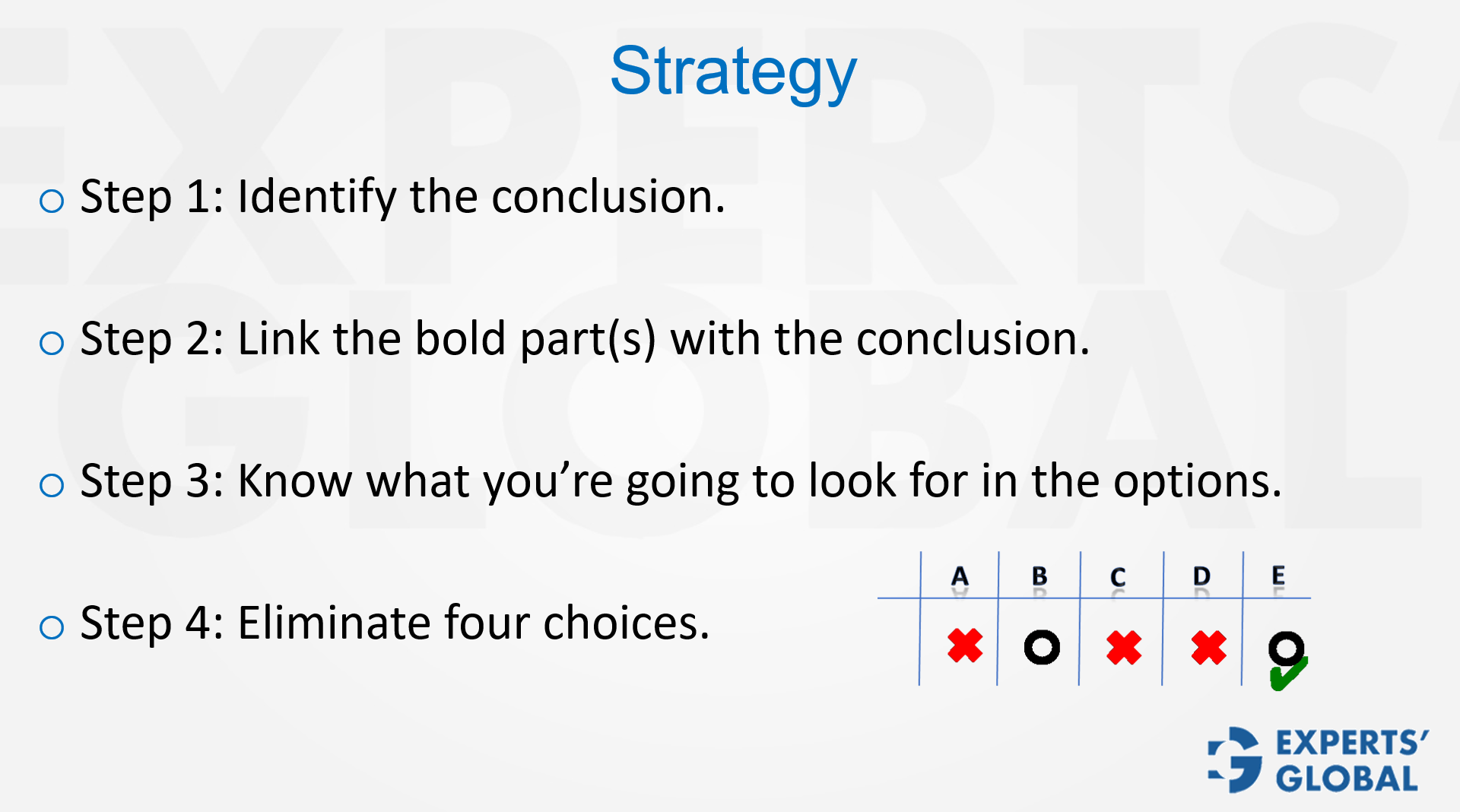Invest 30 seconds...
...for what may lead to a life altering association!
Help Line
- +91.8800.2828.00 (IND)
- 1030-1830 Hrs IST, Mon-Sat
- support@expertsglobal.com
...for what may lead to a life altering association!


Vocabulary is central to GMAT Critical Reasoning Boldface questions. Test-takers must master key nouns such as conclusion, evidence, assumption, and judgment, along with vital verbs such as oppose, support, evaluate, and undermine. Recognizing these words helps in interpreting argument structure and selecting the correct answer choice.
A clear command over vocabulary is vital for success in GMAT Boldface reasoning. The test repeatedly employs specific nouns such as conclusion, circumstance, evidence, opinion, and assumption, as well as decisive verbs including oppose, support, evaluate, and undermine. Each term conveys a distinct logical role, and precise understanding ensures accurate identification of how bolded statements function within an argument. Effective GMAT prep therefore involves systematic practice with these words so that their implications become second nature. Building familiarity with both the nouns and verbs allows candidates to approach Boldface questions with greater clarity, confidence, and efficiency during the exam.

Boldface questions on the GMAT CR present a passage with one or more highlighted portions, and the task is to determine the answer choice that best explains the role those sections play in the argument. The right method is to begin by identifying the argument’s conclusion, then connect each bolded part to that conclusion, next establish a general expectation for the correct option, and finally use elimination. Once four choices are ruled out, ensure the remaining option aligns fully before selecting it.
While the reasoning itself is not very different from other critical reasoning questions, the vocabulary in the answer choices can feel overwhelming. Understanding these terms with precision makes all the difference.
Among these, the most crucial for GMAT Boldface reasoning are conclusion, circumstance, evidence, fact, opinion, judgment, and assumption.
Of these verbs, oppose, establish, evaluate, support, explain, undermine, and challenge are the most commonly used in Boldface answer choices.
Often, students know the logic of the passage but get lost in the complexity of words in the options. A sentence like “the first is a circumstance whose implication the argument seeks to evaluate” will only make sense if you know exactly what “circumstance” and “evaluate” mean. Without this clarity, the reasoning appears much harder than it really is.

Treat vocabulary as a toolkit, not trivia. Build a glossary of core nouns and verbs, and revisit it daily. During practice and GMAT mocks, pause before options, name each boldface role, and predict the language you expect. Underline role verbs in choices, then test them against the passage. Maintain a notebook of near misses and refine definitions. With steady repetition, precision becomes instinct, timing steadies, and your reasoning gains authority.
Mastering Boldface vocabulary turns confusion into structure. Learn the core nouns and verbs, then link each bolded part to the main conclusion. Ask whether a term reports, supports, or decides. Build a quick mind map, set an expectation, and eliminate precisely. Treat circumstance, evidence, and assumption as functional labels, not ornaments. Fluency with these words accelerates accuracy, steadies timing, clarifies thinking, and strengthens both GMAT performance and your analytical communication.
Vocabulary is not decoration. It is a lens for truth. When you choose the right word, you choose the right action. Boldface drills teach you to name roles with care, link claims to conclusions, and accept only what evidence earns. That is GMAT preparation at its best. MBA applications ask the same discipline. You frame a clear claim about fit, support it with proof, and step aside from noise. Life extends the lesson. Accurate words shape honest thinking, honest thinking shapes decisive choices, and decisive choices shape character. Keep choosing precise language, and you will lead yourself and others well.